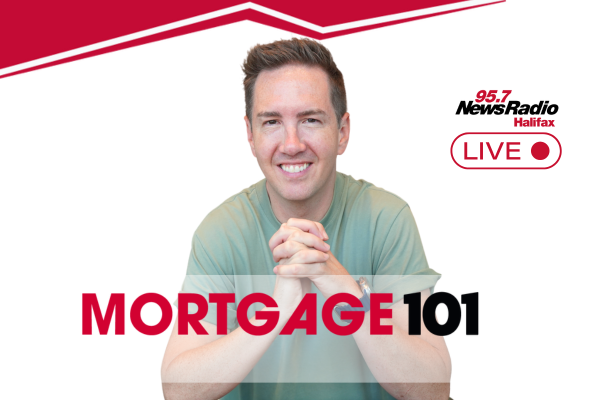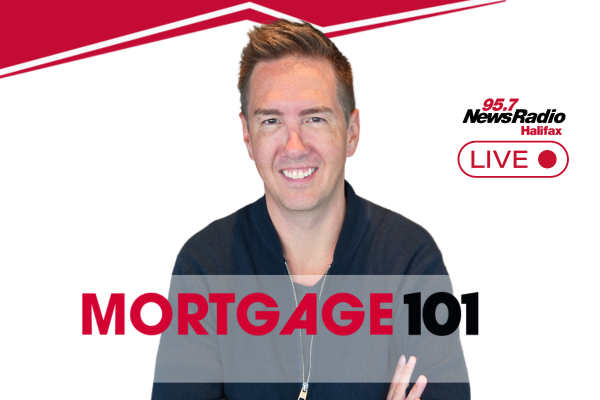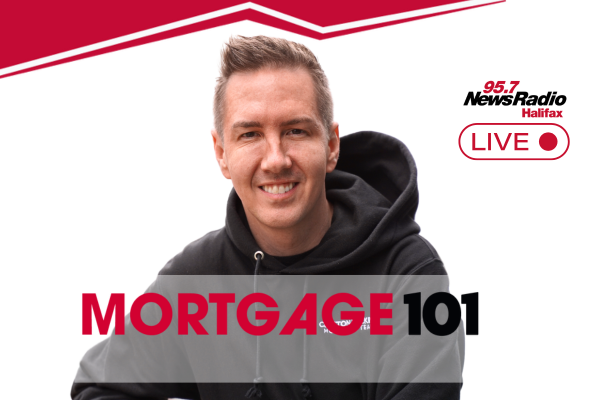Dan Ahlstrand and Clinton Wilkins are joined by Mario Cloutier of Manulife to discuss the importance of risk insurance for home additions, creditor insurance, and the importance of financial literacy.
Rick Howe: Talking about self-employed mortgages
Self-employed?
Talking a bit more about self-employed income!
First time? Don’t feel like listening? Check out the audio transcript below.
This is a five-minute business builder with Rick Howe, where your business comes first, on News 95.7.
Talking about self-employment income
Rick Howe: [00:00:09] 12:24 is the time, and from time to time, we welcome members of HRM’s Business Community to the studio to join us for a few moments, and back with us this afternoon is Senior Mortgage Adviser Clinton Wilkins. Hi, Clinton.
Clinton Wilkins: [00:00:19] How are you doing today, Rick?
Rick Howe: [00:00:20] I’m doing great. How are you doing?
Clinton Wilkins: [00:00:22] I’m doing just great! It’s Thursday and it’s financial literacy month. So we’ve been putting out lots of content and hopefully lots of good information.
Financial Literacy Month
Rick Howe: [00:00:29] So what is financial literacy month, what this is all about?
Clinton Wilkins: [00:00:32] Well, I think November is a great time to look at your personal finances. And really in terms of mortgage, it’s the biggest debt of your life, and buying a home is the biggest purchase of your life. So we’ve been talking about income, assets and credit. Each week we’re kind of drilling down to a specific topic and trying to give as much information as possible. I think information is power, and I think the more information you can have, the more educated of a decision you can make.
Rick Howe: [00:00:56] So you want to focus this segment on self-employment income?
Canadians are becoming self-employed daily
Clinton Wilkins: [00:01:00] Yeah, more and more Canadians are becoming self-employed every day. I can tell you, you know, in Halifax and Atlantic Canada, we have a lot of people who are self-employed. Sometimes when you’re self-employed, it’s more challenging borrowing, more challenging buying a home.
Because, you know, as we all know, it’s the old adage, it’s not necessarily, what you make, it’s what you spend, and sometimes the income that you have on paper and when you’re self-employed isn’t maybe enough to make the numbers actually drive. And self-employment, there’s so many different types. You know, you can have a corporation or you could be a sole proprietor. There’s so many different types of self-employment.
Rick Howe: [00:01:32] Or just a little mom and pop shop out of your basement.
Clinton Wilkins: [00:01:34] It can be a mom and pop shop as well, and, you know, we really like to hold the client’s hands, and especially when you’re self-employed. There are so many different programs out there. And when you’re looking at doing, you know, buying a home or doing any type of mortgage lending, we’re really looking at income assets and credit. And if the income on paper isn’t quite there, there are some programs. So, you know, there’s still some stated income programs and there’s ways where you’re self-employed that you can qualify and still be able to get a mortgage.
Rick Howe: [00:02:01] But you do have to jump through more hoops as if you’re self-employed?
Providing more information
Clinton Wilkins: [00:02:03] They have to prove more information. So sometimes when you’re self-employed, you know, you need to provide two years of your tax returns and we can look and see how much you’ve made the last two years, and average that. If you’re a sole proprietor, sometimes we can gross up that income that you’re claiming. And if there’s a corporation, sometimes we can add back some of your corporate profit. But if none of those solutions work, you might not be able to get traditional lending. But there are other options.
Rick Howe: [00:02:27] Non-traditional? What would that be?
Clinton Wilkins: [00:02:29] So that would be like an alternative lender. So, you know, we’ve said the term subprime, but I think there’s really near-prime lenders and they’re certainly willing to lend in more urban areas.
Rick Howe: [00:02:41] But at a little higher cost?
What about the rates?
Clinton Wilkins: [00:02:42] Typically, the rate could be a little bit higher. But would you rather pay a little bit higher and at a rate in terms of a mortgage or would you rather pay more income tax?
Rick Howe: [00:02:50] Yeah.
Clinton Wilkins: [00:02:51] So, you know, if you’re not paying the tax, sometimes you’ve to pay a higher rate or vice versa. And sometimes going with an alternative lender, it’s a short term solution. Maybe we need to put a client in one of these lenders for one or two years to get their situation cleaned up and then be able to get back into a more traditional bank lender. We deal with a variety of different lenders, and I think just to look at all the different, you know, things that people have around their income, we can really put them in that right category. And sometimes when you’re self-employed, you know, there is a little bit more due diligence.
You know, some lenders think that being borrowers that are self-employed are riskier. But in my opinion, I’m self-employed. I think self-employed people are actually better. The reason being is if I need to make a little bit more money, I’m just gonna work a little bit harder. But people like you, Rick, who earn a salary. You know, it doesn’t matter how hard you work, you’re still going to get that same pay.
Risk of self-employed
Rick Howe: [00:03:44] I’m a hard worker! I’ll tell ya.
Clinton Wilkins: [00:03:45] You’re the hardest worker. And, you know, we love coming on here, but people are self-employed. You know, there are certainly pros and cons, but I think there are more and more people becoming self-employed every day.
Rick Howe: [00:03:56] You’re going to be on with Todd this weekend to answer more questions?
Clinton Wilkins: [00:03:57] We’re going to be on Saturday morning at 10:00 a.m. We’re gonna talk a little bit more about self-employment, drill really down into some topics. And if you’re self-employed or if you know someone who is self-employed, I think to tune in and certainly call in, and you can certainly ask us any of those questions.
Rick Howe: [00:04:12] All right, That’s Saturday morning with Todd. Thank you, Clinton!
Radio: [00:04:14] The News 95.7 5-minute Business Builder with Rick Howe, where success matters.
If you have any questions about Homeownership or what that means for your situation, get in touch with us here.


